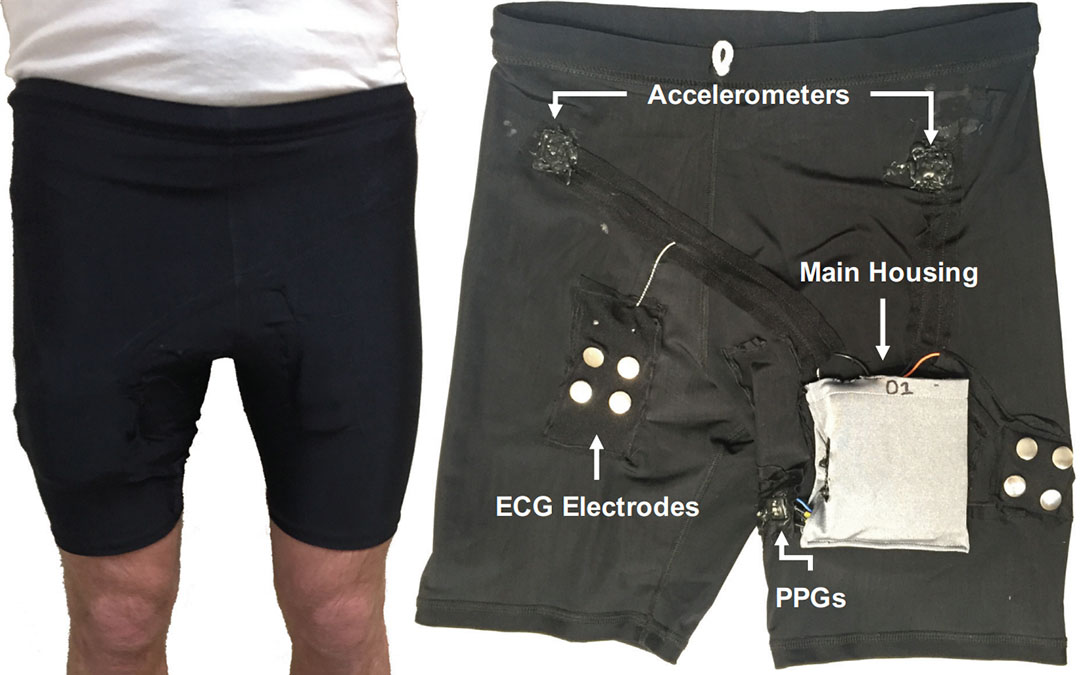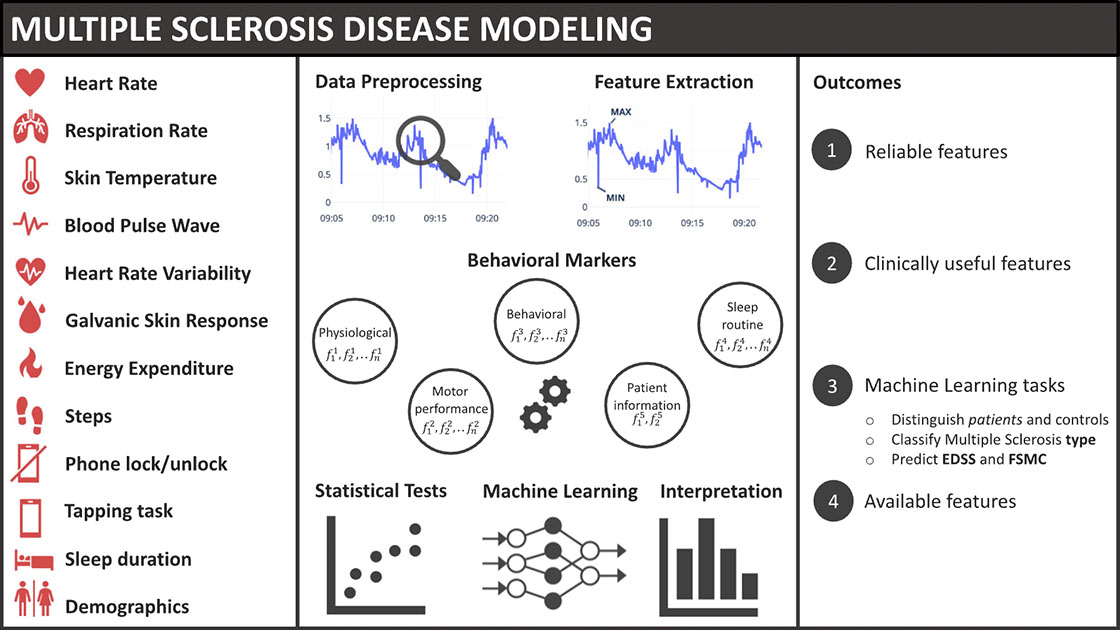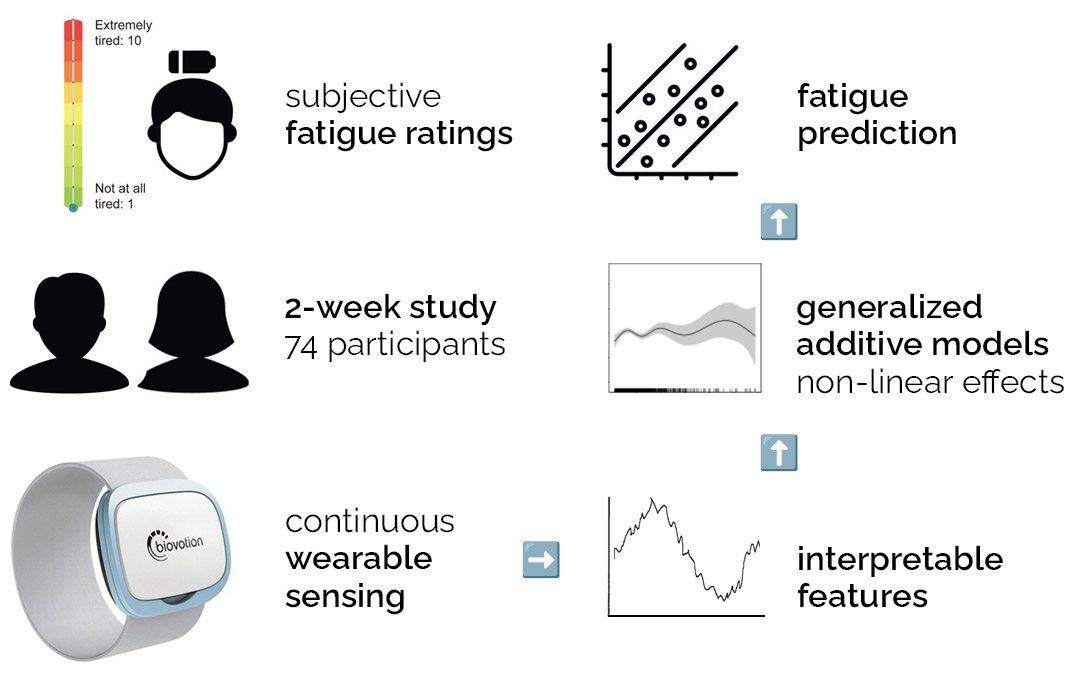Continuous monitoring with wearables in multiple sclerosis reveals an association of cardiac autonomic dysfunction with disease severity
Multiple Sclerosis Journal 2022–Experimental, Translational and Clinical 2022Abstract
Background: Dysfunction of the autonomic nervous system is common in multiple sclerosis patients, and probably present years before diagnosis, but its role in the disease is poorly understood. Objectives: To study the autonomic nervous system in patients with multiple sclerosis using cardiac autonomic regulation measured with a wearable. Methods: In a two-week study, we present a method to standardize the measurement of heart rate variability using a wearable sensor that allows the investigation of circadian trends. Using this method, we investigate the relationship of cardiac autonomic dysfunction with clinical hallmarks and subjective burden of fatigue and autonomic symptoms. Results: In 55 patients with multiple sclerosis and 24 healthy age- and gender-matched controls, we assessed the cumulative circadian heart-rate variability trend of two weeks. The trend analysis revealed an effect of inflammation (P = 0.0490, SMD = -0.5466) and progressive neurodegeneration (P = 0.0016, SMD = 1.1491) on cardiac autonomic function. No association with subjective symptoms could be found. Conclusions: Trend-based heart rate variability measured with a wearable provides the opportunity for unobtrusive long-term assessment of autonomic functions in patients with multiple sclerosis. It revealed a general dysregulation in patients with multiple sclerosis.
Reference
Marc Hilty, Pietro Oldrati, Liliana Barrios, Tamara Müller, Claudia Blumer, Magdalena Foege, PHRT consortium, Christian Holz, and Andreas Lutterotti. Continuous monitoring with wearables in multiple sclerosis reveals an association of cardiac autonomic dysfunction with disease severity. In Multiple Sclerosis Journal 2022–Experimental, Translational and Clinical 2022.





